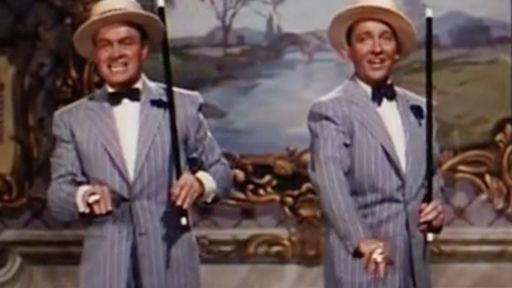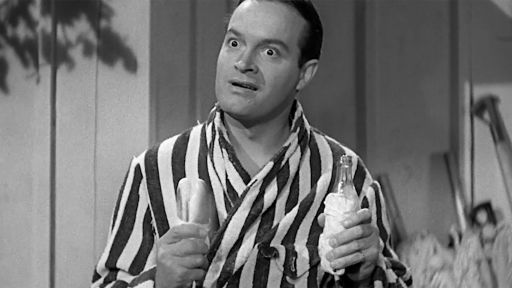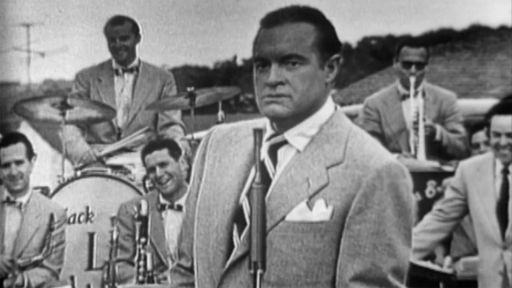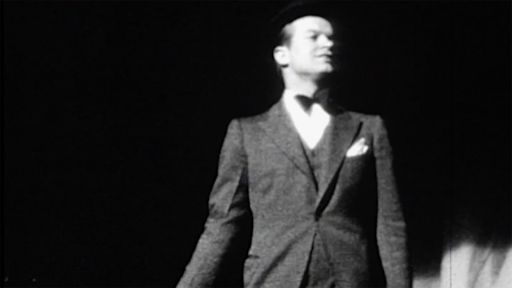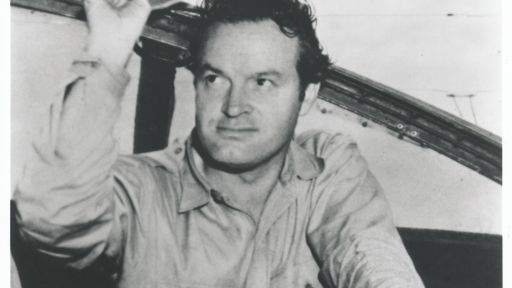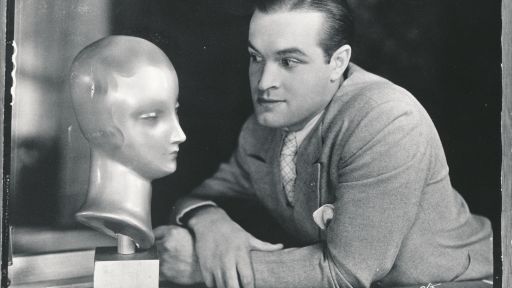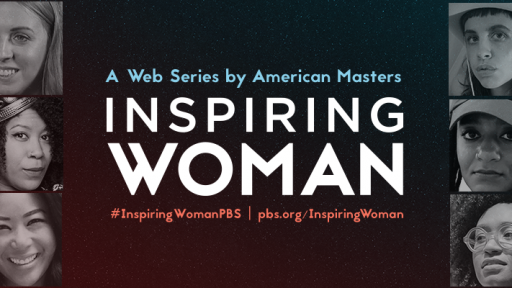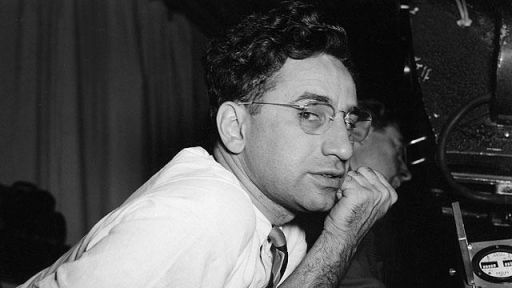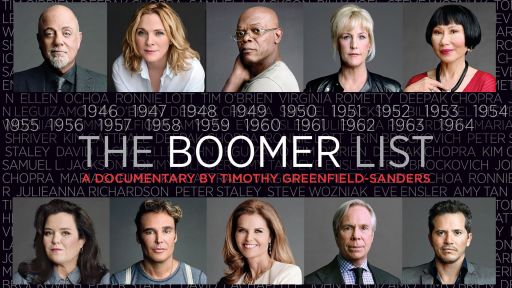TRANSCRIPT
Probably the most important legacy of Bob Hope was his public service work. He was really the model for public service in Hollywood. What he said to his fellow Hollywood stars was, 'You're famous. You have an obligation to use your fame to do good to work for causes.' I've been associated with Community Chest drives for the past 10 or 12 years, and I know the importance of this particular project. I know it embodies many many charities and I know you can't do a nicer thing in your life ladies and gentlemen. Just contribute to this community chest and also enrich your own community; there's nothing better. Thank you very much. That work he did, that obligation he felt was an excellent example for people in our business. Where he stood, he made it very easy to understand that, and he made us all very conscious that that was there as part of this gift you've been given of success. Many years he did from 100 to 150 benefits a year, and they were benefits for all kinds of things.
He used to always say to us, 'You don't have to be a comedian, you don't have to be anybody special you can always give back.' The United States government gave the USO that duty of serving the boys in our armed forces.
Your share, though contributed impersonally in dollars and checks, is transformed by the USO into an unforgettable service. I don't say you must give until it hurts. I say give until it wouldn't hurt you to look a bedridden veteran in the eye. Synonymous with Bob Hope when I was growing up was USO and entertaining the troops.
What the hell do you mean get out of the way?
I'm the star. Everybody in my generation knew that he entertained the troops and he invented entertaining the troops. What I didn't know was how much of his career he devoted to it after WWII. Bob thought his mission to bring laughter to the Armed Forces was over but in December 1948 President Truman asked him to return to Germany to entertain Airmen taking part in the Berlin Airlift. Two years later he visited troops during the Korean War, and by the mid-1950s he had started an annual tradition of traveling somewhere in the world to entertain U.S.
forces every Christmas. This is very nice of him to give me this. Would you like to play the back nine in Beirut? From Vietnam to his last Christmas show in 1991 during Operation Desert Storm, wherever our fighting men and women were in the world, Bob Hope and his troupe were there.


